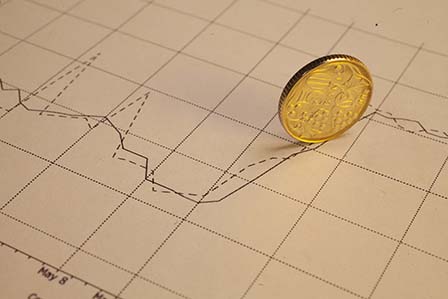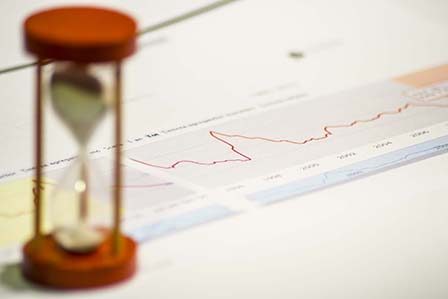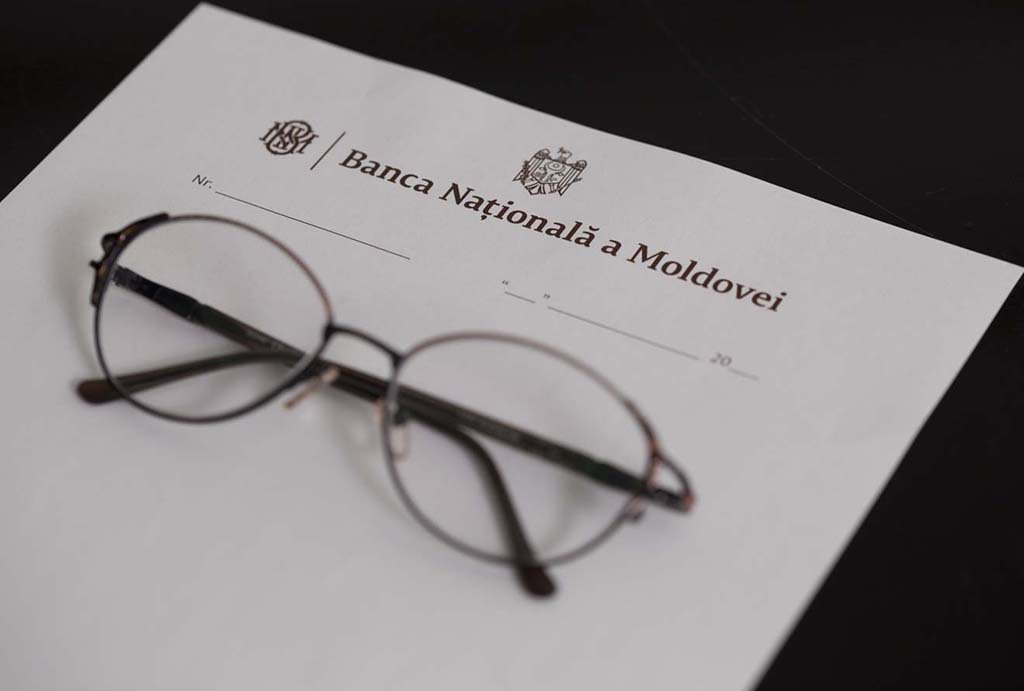Welcome to the official website of the National Bank of Moldova!
×
Do you have good eyesight and want to turn this tool off?
Do you have good eyesight and want to turn this tool off?
Schedule of reception of citizens by the Executive Board of the National Bank of Moldova.
The registration of applicants for an audience is carried out based on a written request on the subject addressed.
Anca Dragu, Governor
1st Wednesday of the month: 14.00-16.00.
Petru Rotaru, First Deputy Governor
2nd Wednesday of the month: 14.00-16.00.
Tatiana Ivanicichina, Deputy Governor
3rd Wednesday of the month: 14.00-16.00.
Constantin Șchendra, Deputy Governor
4th Wednesday of the month: 14.00-16.00.
Mihnea Constantinescu, Deputy Governor
5th Wednesday of the month: 14.00-16.00.
Welcome to the official website of the National Bank of Moldova!
If you want to send a message (question or suggestion) on-line, go to section "Feedback" from the main menu at the top of the website.
You can choose one of the most popular reports from the list:

National Bank and the members of its decision-making bodies shall be independent in exercising the tasks conferred upon them by law, and shall neither seek nor take instructions from public authorities or from any other authority.

In order to ensure and maintain price stability over the medium term, the National Bank’s aim will be to keep inflation (measured by Consumer Price Index) at the level of 5.0 percent annually with a possible deviation of ± 1.5 percentage points, considered to be optimal for growth and development of Moldova's economy over the medium-term.

Financial stability is achieved by strengthening the resilience of the financial system, limiting the contagion effect and reducing the accumulation of systemic risks, thus contributing to the sustainability of the financial sector and economic growth.

National Bank shall have the exclusive right to issue on the territory of the Republic of Moldova banknotes and coins as legal tender, as well as commemorative and jubilee banknotes and coins as legal tender and for numismatic purposes.

National Bank is exclusively responsible for the licencing, supervision and regulation of financial institutions activity.

National Bank of Moldova acts as banker and fiscal agent of the State and shall receive from state bodies economic and financial information and documents, which are necessary for carrying out its tasks.

National Bank of Moldova is an autonomous public legal entity and is responsible to the Parliament.

National Bank shall inform the public on the monetary policy strategy on the results of the macroeconomic analysis, the evolution of the financial market and on statistics, including with regard to monetary supply, crediting, balance of payments and the state of the foreign exchange market.

National Bank of Moldova is responsable for the compilation of the balance of payments, international investment position and the statistics of the external debt of the Republic of Moldova.
The website www.bnm.md prioritizes data security and uses cookies to enhance the browsing experience and user comfort. Accepting the use of cookies contributes to faster page loading and ensures the proper functioning of the information presentation modules. Refusing to use cookies may slow down the site’s loading speed and hinder smooth navigation between pages. For more details, please refer to the Cookie Usage Policy.
Configure your cookie preferences by category. Strictly necessary cookies cannot be disabled, as they are essential for the proper functioning of the website.
These cookies are fundamental to the correct operation of the website. They include session cookies used for load balancing and maintaining the application's state.
Cookies: cookiesession1, JSESSIONID
These cookies enable personalized features, such as font size preferences, interface state, and selection of desktop/mobile version.
Cookies: has_js, fontCookie, statistics_time, statistics_tooltip, bnm_coins_expansion, desktop_version
Such cookies help us understand how visitors interact with our site by collecting and reporting information anonymously.
Cookies: _ga, _gid, _gat, node_stat
These cookies store accessibility preferences, such as text size, contrast, cursor size, and animation settings.
Cookies: a11y_oversized_widget, a11y_animation, a11y_invert, a11y_contrast, a11y_dyslexic, a11y_cursor, a11y_factor
The year 2022 was marked and overshadowed by the war in Ukraine, and on the economic front – by its consequences, which, superimposed with multiple external and internal shocks, made this year an extremely difficult one in economic and monetary terms. Also, the prompt and decisive monetary policy measures taken by the National Bank enabled us to overcome the inflationary wave that Moldova faced and, towards the end of the year, to move firmly onto a downward trend in inflation.
At the beginning of 2022, the economy of the Republic of Moldova was impacted by several events and shocks, the effects of which were still diffusing. The economy was recovering from the pandemic crisis, food prices on the international market were at record highs, energy prices were at historic highs, and rising social payments were fuelling pro-inflationary tendencies. In 2022, the series of inflation-fuelled shocks continued with tariff adjustments and culminated in the outbreak of war in Ukraine, which disrupted supply chains and led to Ukrainian products being replaced by more expensive ones.
The monetary policy tightening, which started in the summer of 2021 in anticipation of the inflationary wave, continued through most of 2022 and was commensurate and appropriate to price forecasts. This allowed us to halt and reverse the trend of accelerating price growth, and at the end of the year to start the monetary policy easing cycle. In the absence of further external and internal shocks, monetary policy easing will continue, with a view to bringing the inflation rate back into the corridor and creating the right conditions for the country’s economy to recover.
The reform of the banking system over the past few years has ensured a high level of resilience in the banking sector, which has allowed it to get through this difficult year without being significantly affected. The stability of the banking system was all the more important in the initial phase of the war, when banks were coping with a considerable volume of deposit withdrawals and servicing payments for the influx of refugees from Ukraine. The banking system remains available to finance growth at the start of the next economic cycle.
The responsible lending regulations implemented during 2022 in the banking and non-banking sector are a major addition to the financial stability measurement toolkit, designed to eliminate household over-indebtedness and ensure that further credit expansion will be sustainable and robust.
The National Bank’s official reserve assets continued to grow during the year, reaching USD 4.5 billion. Their volume provides a sufficient and comfortable level of cover for international trade operations and protection against possible shocks to ensure the resilience of the national currency and its stability.
2023 will be a year of recovery. Easing monetary conditions will create the prerequisites for the economy to recover. Lower inflation will bring the necessary predictability and stability to economic activity, and the banking system is prepared to provide financing for companies and the population. In 2023, important parts of the non-bank financial system – insurance companies, non-bank lending organisations, etc. – will come under the oversight of the National Bank, thus ensuring homogeneous and consistent regulation and supervision across the spectrum of financial activities.
Octavian Armașu
Governor
1 Grigore Vieru Avenue,
MD-2005, Chisinau, Republic of Moldova.
© National Bank of Moldova
Terms of use
Cookie Usage Policy





